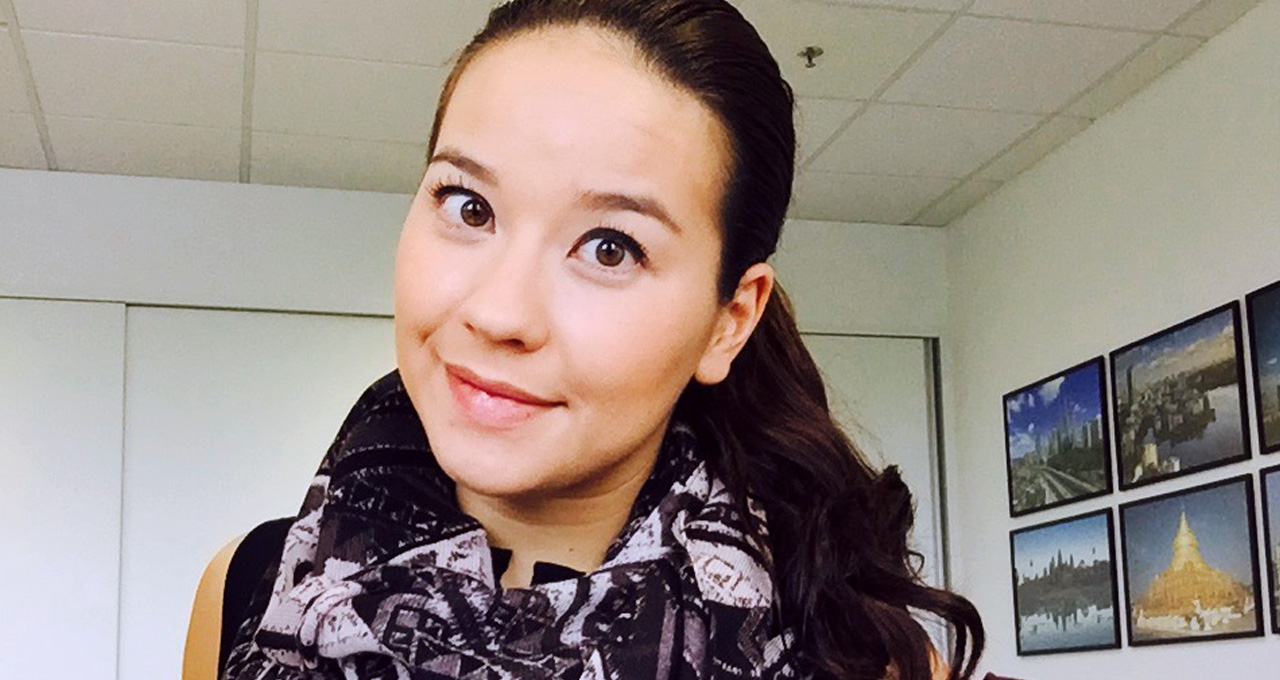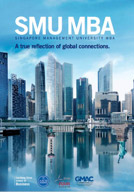
Fu Yalang Grace Bielemeier knows what it’s like to be a woman in male-dominated environments. In university, she studied computer science and e-business, and was part of a cohort that was 90 per cent male. In her first job, she worked for a German company specialising in public transport — around 85 per cent of her colleagues were men. And now, as a full time Representative Assistant at German commercial bank Heleba, about 80 per cent of her colleagues and clients are men.
“These environments have given me no other option than to step out of my comfort zone, and that has shaped my personality and my approach to various things within and outside of my career,” says Grace, who is currently a Master of Business Administration (MBA) student at SMU.
She is also a recipient of the SMU Global Awareness Award, given to individuals who contribute to classroom diversity and enrich the learning experience of students by their cultural, personal or professional backgrounds.
“Confidence, problem-solving and conflicts were not my strengths as a teenager,” recalls Grace.
“I was an introvert, I wanted to be liked, and I seldom went against others’ opinions because I wanted to avoid conflicts. But business is a different playground. In business, I want to be respected for my work and be listened to when it is my turn to share my opinions. I developed a thicker skin over the years and managing conflict and problem-solving have become my strengths.”
When she was 24, Grace moved to Singapore to help a German public transportation consultancy company set up its business here, and was promoted to the role of a director overseeing staff in regional markets just two years later.
“I was in charge of a team of 15 as a local director,” recalls Grace.
“The company and team was male dominant, 85 per cent were male, senior engineering specialists in their 40s. People questioned if it was a right choice to have me take that position and responsibilities at the age of 26.”
She quickly had to prove herself and gain knowledge on how to do business as a young woman at the top, and chart a path for the company towards success in the Asian market. Having honed the skills necessary to address the challenges she had faced, Grace decided to push herself again, and step out of her comfort zone to enter the banking industry where she has been working for the past five years.
“The German banking market is male dominant, and I tapped on my past experience to my advantage,” admits Grace.
“Singapore offers excellent opportunities in banking. The banking industry here shares insights and essence with other elements, like politics, economics, trade and corporations across continents. Today, I work in an exciting industry that is challenged by rapid changes in technology.”
While her own career choices have been motivated solely by her own interests and unimpeded by considerations of whether women would be welcome in male-dominated industries, she is fully aware of the fact that not every woman’s career paths are shaped this way.
“Women around the world should have the freedom to choose their way of living and career planning. Unfortunately, we still have a long way to go before we reach that point,” says Grace.
“One’s environment – including the influences of family, schools and businesses – are important factors. Women’s interest in male-dominated industries is out there, but sometimes we need that little extra bit of support.”
One way to progress at a faster clip towards greater gender equality is by creating such supportive environments from a young age. “Starting gender parity at an early age will improve gender parity in other stages, like university and the workplace,” she believes. “The development of a higher level of understanding of diversity in early years enables all of us, men included, to better relate to one another.”
Exposure to different cultural paradigms can also help, not least to underline the fact that there is more than one pathway to achieve parity. For instance, while many may believe more liberal Western cultures to be further along when it comes to gender equality compared to more conservative Asian cultures, Grace has observed that Singapore has a significant number of women in corporations and leadership positions across various industries.
“From this perspective, it seems that Singapore is much closer to workplace gender equality then Germany,” she points out.
“But we need to understand that culturally-driven responsibilities to support the family tend to be more influential in Asia. In Germany, on the other hand, young adults leave home at a much younger age, develop independence and make choices that prioritise their own benefits — instead of prioritising their family’s needs.”
As for her, she plans to continue her single-minded pursuit of excellence in her chosen field. That’s one reason she signed up for the SMU MBA programme. “I wanted a part-time programme that would help me to connect my skills and strengths, discover unknown weaknesses and develop new perspectives,” she elaborates.
Besides a rigorous grounding in topics such as business planning and financial analytics, the most exciting part of the programme for her has been the group projects. “Fulfilling project requirements within eight weeks with team members from different backgrounds can be challenging, but gives us the most significant learning experiences,” says Grace. “These projects demand soft skills: communication skills, interpersonal skills, emotional skills and more. Problem-solving, time management, team management are essential for success. Books can’t teach that.”
Speak to our Admissions Advisors
Singapore Management University
Lee Kong Chian School of Business
Graduate Programmes Office, Level 4
50 Stamford Road, Singapore 178899
Tel: +65 6828 0882
Join us at the upcoming events
Via Gerolamo Cardano, 1, 20124 Milano MI, Italy
1 Raffles Drive, Makati Avenue, 1224, Makati City
Bayerstraße 41, 80335 München, Germany
You may also be interested in
Executive Master of Business Administration (EMBA)
